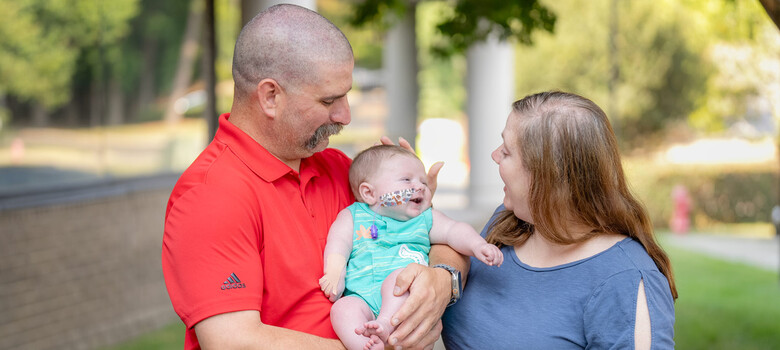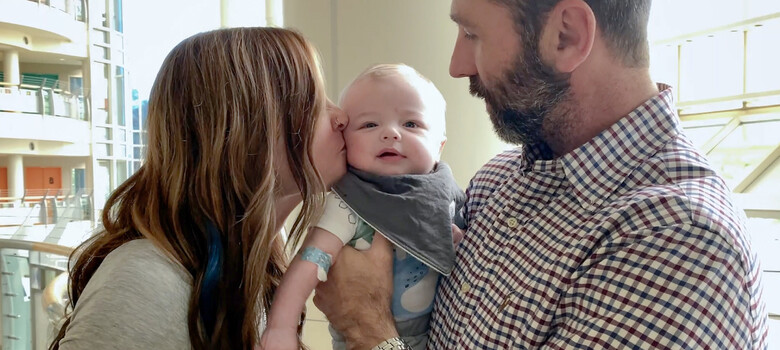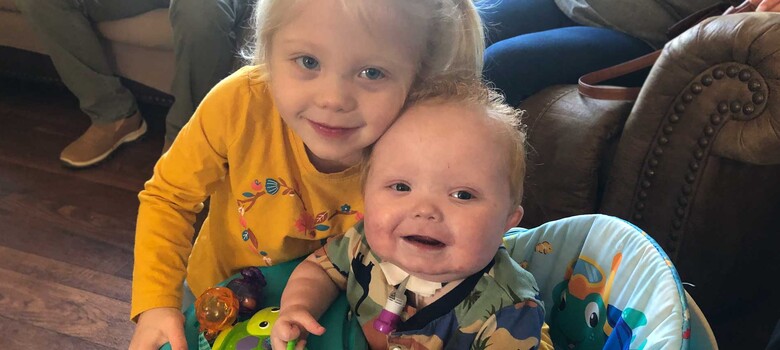After Fontan Procedure, Duke’s Fontan Program Helps Kids Thrive
Experts Join Forces to Catch Complications Early

Pediatric cardiologist Gregory Fleming, MD, speaks with a patient who previously underwent the Fontan procedure.
Children who undergo a series of heart operations to treat single ventricle heart defects can experience serious complications like organ failure later in life. The Fontan Program at Duke Children’s Hospital and Health Center -- the only one in North Carolina and one of the few in the U.S. -- offers advanced care to identify problems early and help your child stay healthy as they grow.
Comprehensive Care Is Important for Fontan Patients
The Fontan procedure is the last in a series of surgeries, sometimes called “Fontan palliation,” that essentially re-plumb the heart in stages. It is usually done in children who are three or four years old. Afterwards, most kids can have a normal childhood thanks to these advanced operations. However, ongoing care is important to help minimize complications.
Regardless of whether your child is experiencing symptoms, around age 10 is a good time to seek out more advanced care, said Duke pediatric cardiologist Gregory Fleming, MD, who leads the Fontan clinic.
Because of the underlying heart disease and how their hearts function after the Fontan, as these kids get older, they are more likely to develop problems, Fleming said. Problems range from neurodevelopmental delays and growth problems to heart failure, liver disease, and kidney failure.
What to Expect from Duke’s Team of Experts
Your child will visit Duke about once or twice a year to see a team of specialists who are experienced in working with this unique patient population. We do our best to arrange your child’s appointments, labs, and other tests all on one day, whenever possible.
In addition to seeing a pediatric cardiologist, hepatologist, physical therapist, and dietitian, your child will also have access to social workers, endocrinologists, nephrologists, hematologists, adolescent gynecologists, neurodevelopmental experts, and other specialists as needed. Our core providers meet monthly to review and discuss patient progress. We follow American College of Cardiology guidelines for maintenance testing, imaging, and catheterization procedures. We also communicate with your child’s primary cardiologist to share updates and treatment recommendations.
Why Choose Duke for Fontan Care
Duke’s is the only Fontan program in North Carolina, and one of only a handful in the nation. We welcome patients who had their Fontan surgery at Duke or elsewhere, up to age 26. That’s when we transition care to the Duke Adult Congenital Heart Disease Program. As a member of the Fontan Outcomes Network, we are always working to improve outcomes for people with single ventricle heart disease.
Don’t Wait Until It’s Too Late
Even if your child is not experiencing problems now, routine follow-up care can help avoid or reduce complications down the road.
“As people get older, they start to get away from regular follow-up because they're not having active symptoms,” Dr. Fleming said. “This clinic will make sure that they maintain follow-up and the appropriate surveillance evaluations too.”




